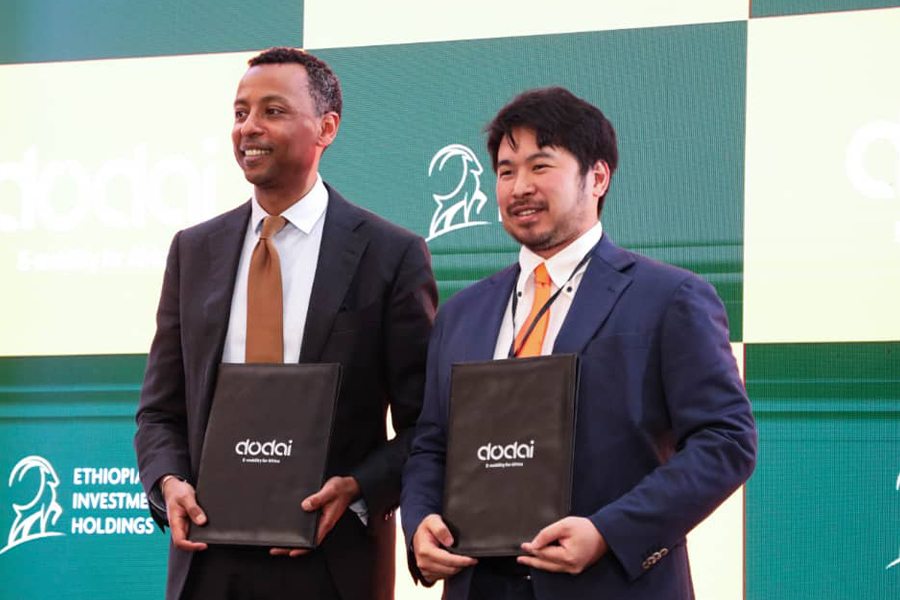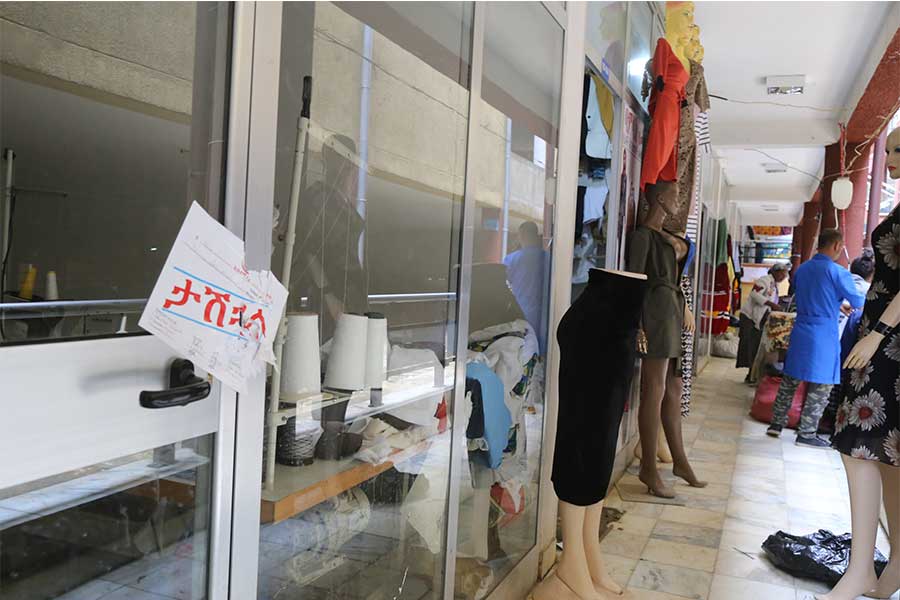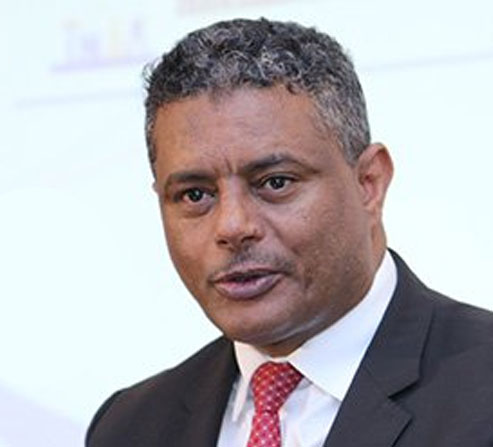
Radar | Mar 23,2024
Reduced claims and improved investment income ushered Abay Insurance toward increasing its net profit by 12.3pc to 63 million Br in the last fiscal year. Yet its earnings per share (EPS) declined slightly.
The EPS fell by 9.7pc to 28pc due to the increased paid-up capital, which stood at 243.3 million Br, registering a 30pc rise.
Despite the reduction, the EPS level is good, according to Abdulmenan Mohammed, a financial statement analyst with close to two decades of experience.
Even though the firm was successful last year, there were challenges in the industry, according to Abate Sitotaw, board chairperson of Abay.
Lack of effective and transparent legal and regulatory systems in combination with the immature financial markets and common usage of informal types of insurance contributed to low insurance penetration, according to Abate.
“The critical shortage of hard currency, government attention toward poverty rehabilitation impacting investment, and the prevalence of COVID-19 and its prolonged effects on the country’s economy possibly hampered the insurance industry,” said Abate.
Gaps in communications with the industry operators, fierce price battles, shortages in high-calibre human resources, and huge investment required to launch a new product which has a lower return were the major challenges Abay faced, according to Abate.
The firm's increase in profit after tax was driven by increased gross written premium, reduced claims and improved investment activities and commission income. Gross written premium at Abay has increased by 8.5pc to 270.5 million Br. Out of this total, 70pc was retained, which is 3.2 percentage points lower than the preceding year’s rate.
This shows that a considerable sum of the premium was passed over to reinsurers, according to Abdulmenan.
"The retention rate of Abay is much lower than the industry average," added the expert.
Even though the rise in paid-up capital enabled Abay to boost its retention capacity, the firm ceded a higher value to the reinsurance companies last year, according to Yohannes Zewdie, Abay's CEO.
The share of facultative reinsurance arrangement, where the reinsurer covers a single risk or defined packages of risks, has dominated the treaty reinsurance, which covers a ceding company’s entire book of business, according to Yohannes.
Claims paid and provided for dropped by 5.4pc to 97.6 million Br, contributing to the improved profit performance.
"The management should keep up the practice of keeping claims down," recommended Abdulmenan.
Claims for the motor class of business were natural, according to Yohannes. The motor claims made up 58pc of total claims, which is lower than the industry average of 65pc, according to Yohannes.
Abay also did well in investment activities. Total investment income increased by 16.3pc to 38.5 million Br, where dividend earnings surged by 10.7pc to 27.9 million Br. Abay received commissions of 29 million Br, an increase of 29.3pc. Other operating income increased significantly by 64pc to 4.1 million Br.
A marginal rise in expenses also accompanied the income increase. Salaries and other operating costs of Abay went up by 18pc to 59.8 million Br.
The firm's total employee count had reached 219 by the end of the last fiscal year, with staff working across its 30 branches.
The expansion of expenses is reasonable, according to Abdulmenan.
The total assets of Abay also expanded by 17.2pc to 860.2 million Br. Out of this, 25.7pc was invested in interest-earning time deposits. Abay’s investment in shares was 12.4 pc. Receivables from reinsurers were 108.8 million Br.
Cash and bank balances were 83.4 million Br, an increase of 7.3pc. The ratio of cash and bank balances to total assets went down to 9.7pc from 10.6pc.
Despite the reduction, the liquidity level of Abay was good, according to Abdulmenan.
Abay had capital and non-distributable reserves of 269.9 million Br. The paid-up capital and the non-distributable reserves represent 31.4pc of its total assets.
This indicates that Abay has strong capital, which should be used efficiently, according to Abdulmenan.
Habtamu T. Tsadik, who joined Abay a year after it became operational, says that the firm achieved more than his expectations despite the industry's challenges due to the pandemic and political violence.
Habtamu joined Abay with one share, worth 25,000 Br, and now he is subscribed for shares worth a half a million Birr.
"During the first three consecutive years of operations, the firm was registering losses," said Habtamu, "Now, it is among the top firms with higher premium production and owns a building.”
PUBLISHED ON
Jan 16,2021 [ VOL
21 , NO
1081]

Radar | Mar 23,2024

Fortune News | Sep 24,2018

Radar | Oct 27,2024

Fortune News | Jan 05,2020

Radar | Dec 08,2024

Fortune News | Feb 26,2022

Fortune News | Mar 20,2021

Fortune News | Apr 12,2020

Featured | Sep 28,2019

Radar | Apr 03,2021

Dec 22 , 2024 . By TIZITA SHEWAFERAW
Charged with transforming colossal state-owned enterprises into modern and competitiv...

Aug 18 , 2024 . By AKSAH ITALO
Although predictable Yonas Zerihun's job in the ride-hailing service is not immune to...

Jul 28 , 2024 . By TIZITA SHEWAFERAW
Unhabitual, perhaps too many, Samuel Gebreyohannes, 38, used to occasionally enjoy a couple of beers at breakfast. However, he recently swit...

Jul 13 , 2024 . By AKSAH ITALO
Investors who rely on tractors, trucks, and field vehicles for commuting, transporting commodities, and f...

Oct 4 , 2025
Eyob Tekalegn (PhD) had been in the Governor's chair for only weeks when, on Septembe...

Sep 27 , 2025
Four years into an experiment with “shock therapy” in education, the national moo...

Sep 20 , 2025
Getachew Reda's return to the national stage was always going to stir attention. Once...

Sep 13 , 2025
At its launch in Nairobi two years ago, the Africa Climate Summit was billed as the f...